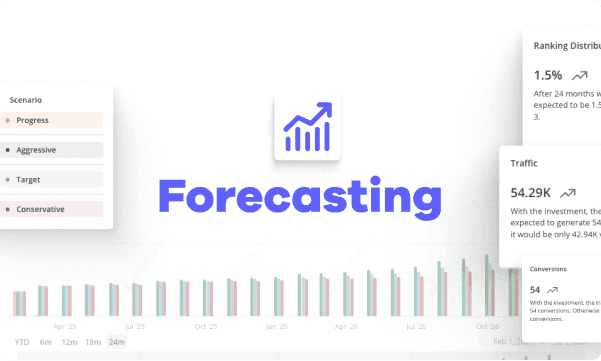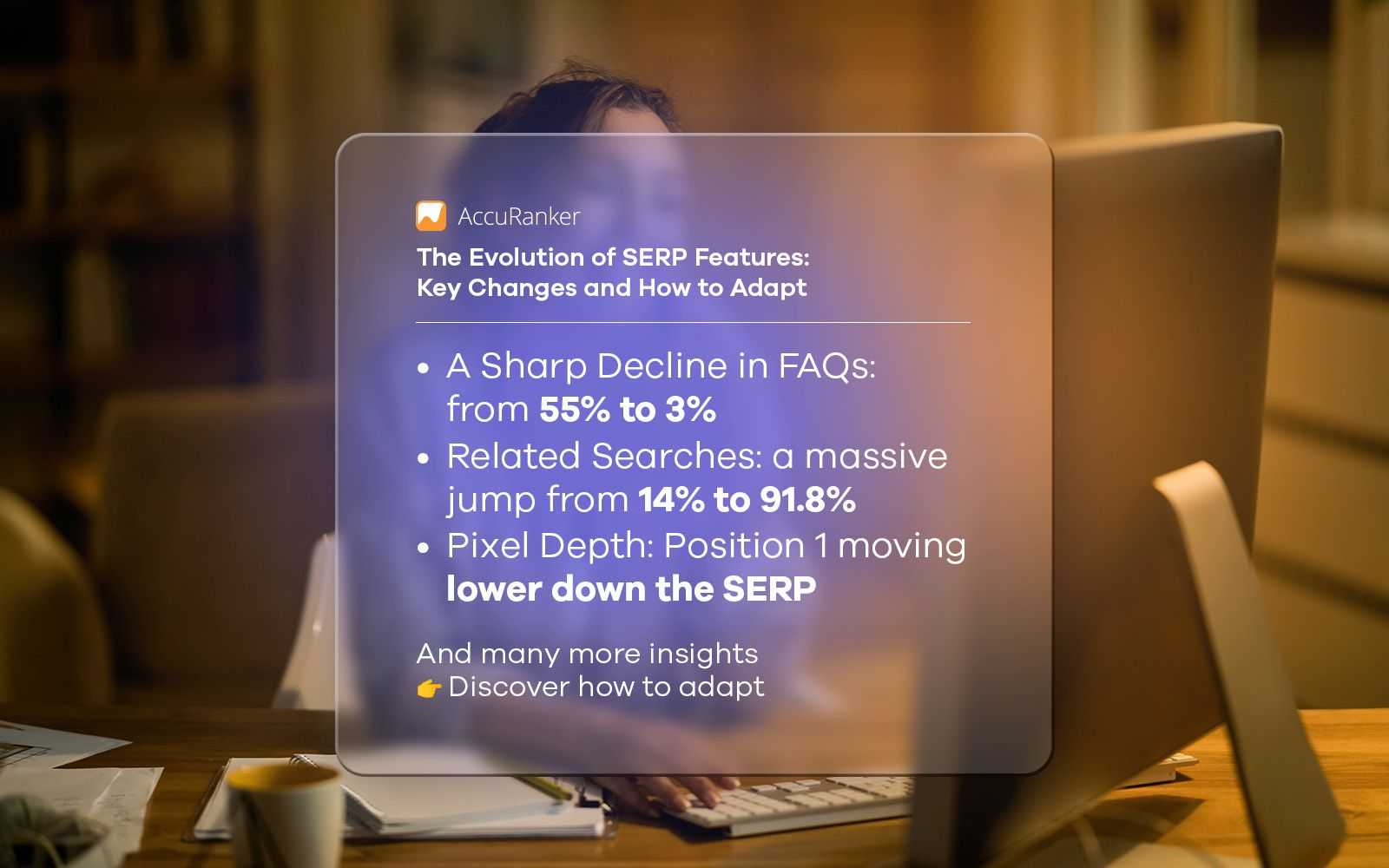How to Utilize Rank Tracking for Competitive Analysis
Last updated on Tuesday, November 7, 2023
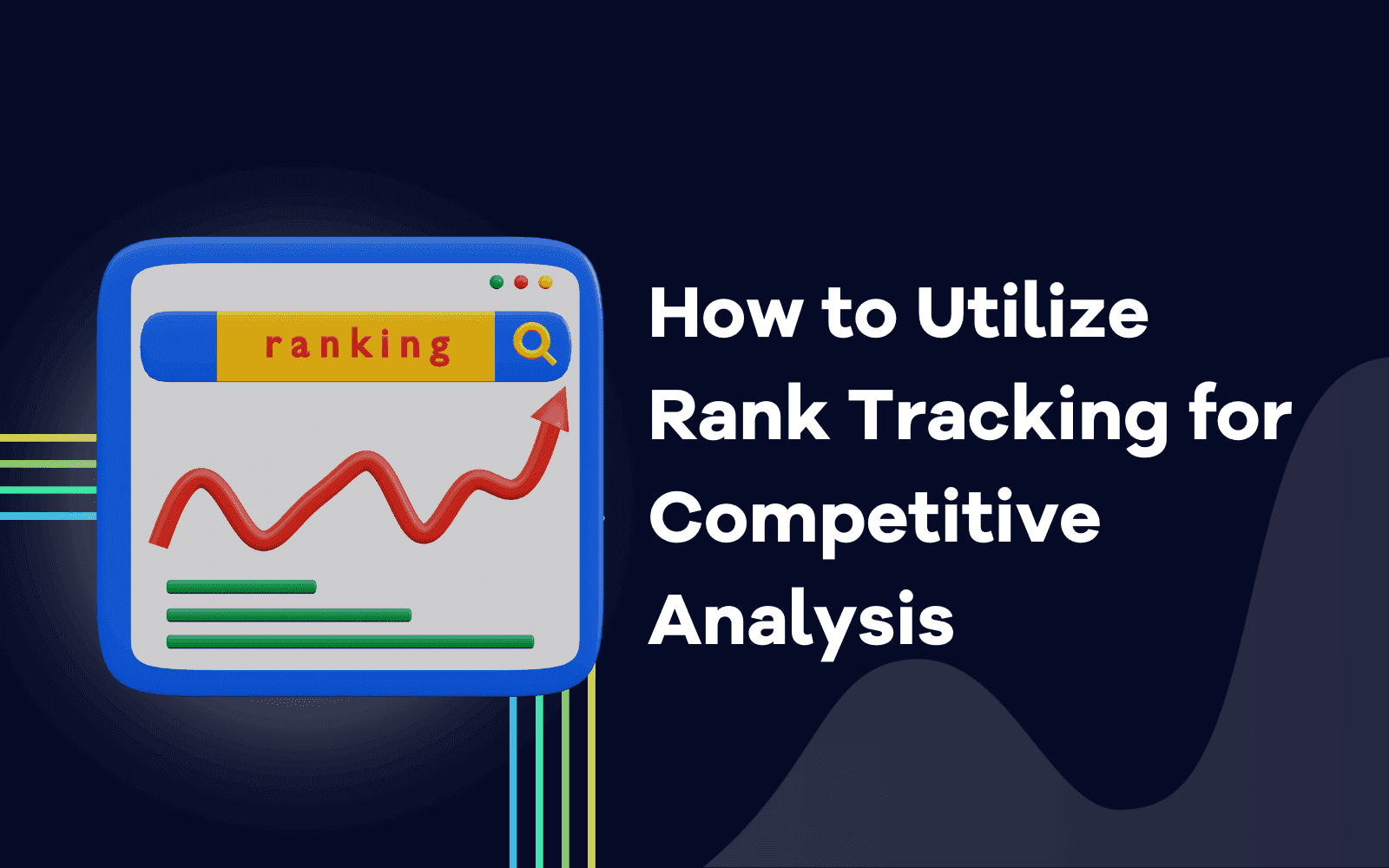
Whether you want to grow your business, get into affiliate marketing, or take on any venture that requires getting organic traffic, it's smart to check on your competitors.
Knowing how your competitors are ranking in the search engines can give you insights into their performance so you can determine how to get ahead.
That’s where rank tracking can make all the difference. You need this because you don’t want to end up on the second page of Google search results, which less than 1% of searches click on.
Follow these nine tips to find the weak spots of your competitors and get actionable insights on how to outrank them.
How Rank Tracking Can Provide Insights into Competitor Strategies
Rank tracking can help you size up your competition to reveal content gaps and discover ways to boost your rankings in search engine results pages (SERPs).
You'll gain deep, actionable insights into the competitive landscape to effectively boost your rankings and even surpass competitors.
When you enter a competitor's URL, you can see how well they rank for relevant keywords in your industry. If their web pages are in the top 10 results, then they're likely doing something right.

Source: Image Source
As you enter URLs for different web pages, you may notice trends that play a role in your competitors' ranking success. From there, you can take what your competitors are doing and apply it to your SEO strategy.
#1. Understanding the Basics of Rank Tracking
Rank tracking is essentially what the name suggests. You're tracking your competitors' rankings in the SERPs.
For example, imagine that you own an ecommerce company and you're trying to boost your website's search engine rankings.
You'd take one of your competitor's web page URLs (Amazon) and input it into a rank tracking tool like AccuRanker. You'll see on-page, off-page, and ranking data for a particular URL.
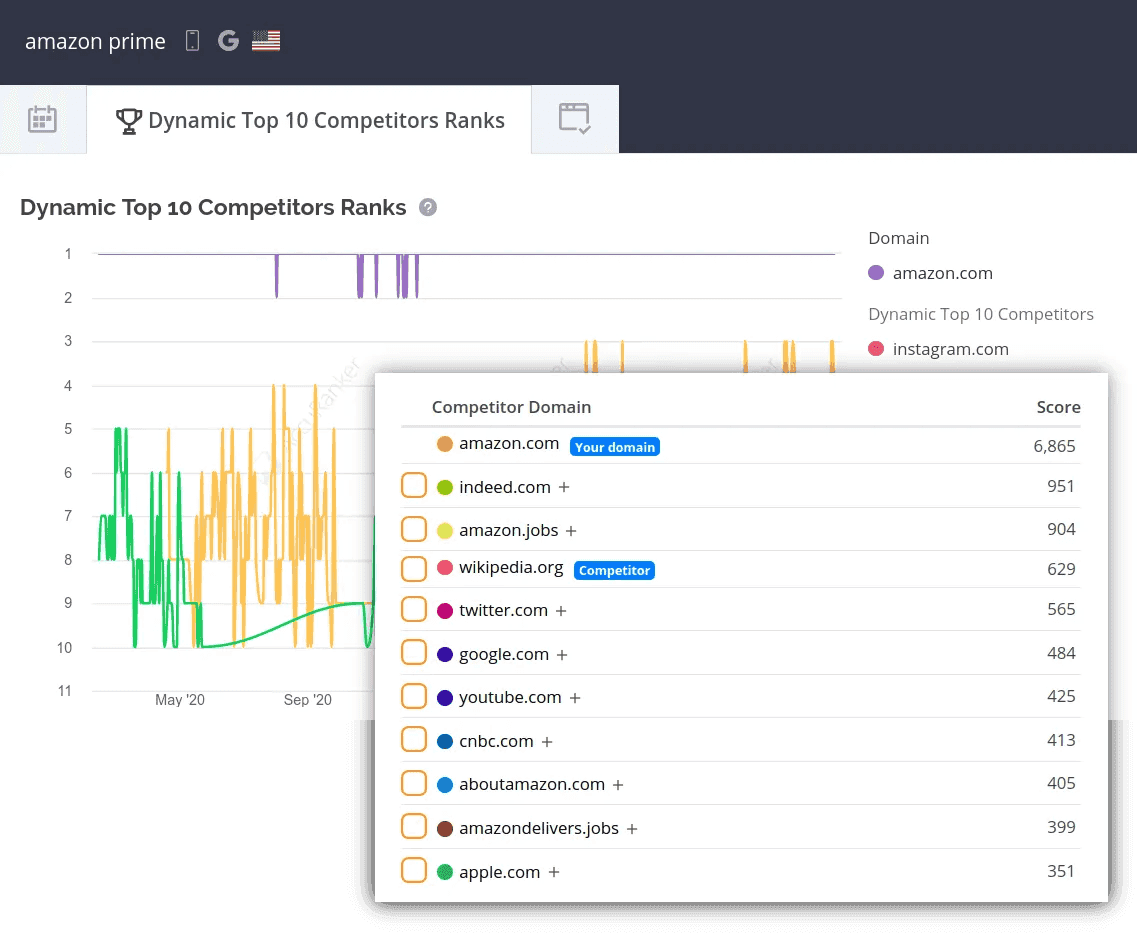
Source: Accuranker
This will help you understand what factors are driving traffic and revenue to your competitors.
In this case, maybe your competitor ranks pretty high for the keyword "same-day delivery."
They also rank well for keywords "free shipping" and "easy returns." What do all these pages have in common?
You go to their website and see quite a few things that may be positively affecting their rankings:
Their blog posts provide lots of value with actionable tips.
They've gained high-quality backlinks from reputable sites with a high domain authority.
They've naturally incorporated keywords throughout their content, including the first 100 words.
The keywords are also included in title tags, H1 titles, H2 headings, and meta descriptions.
Their images are optimized, with alt text and file names that include keywords. Images are also compressed in size, which helps improve page speed.
Once you analyze these factors, you'll unlock ways to compete in search engines and outrank your competitors.
Plus, you'll know what it takes to increase operational excellence, which is a crucial component required to help you continuously improve your SEO strategy.
Thankfully, AccuRanker provides easily accessible ranking data that allows you to visualize how your site — and competitors — are faring in the SERPs.
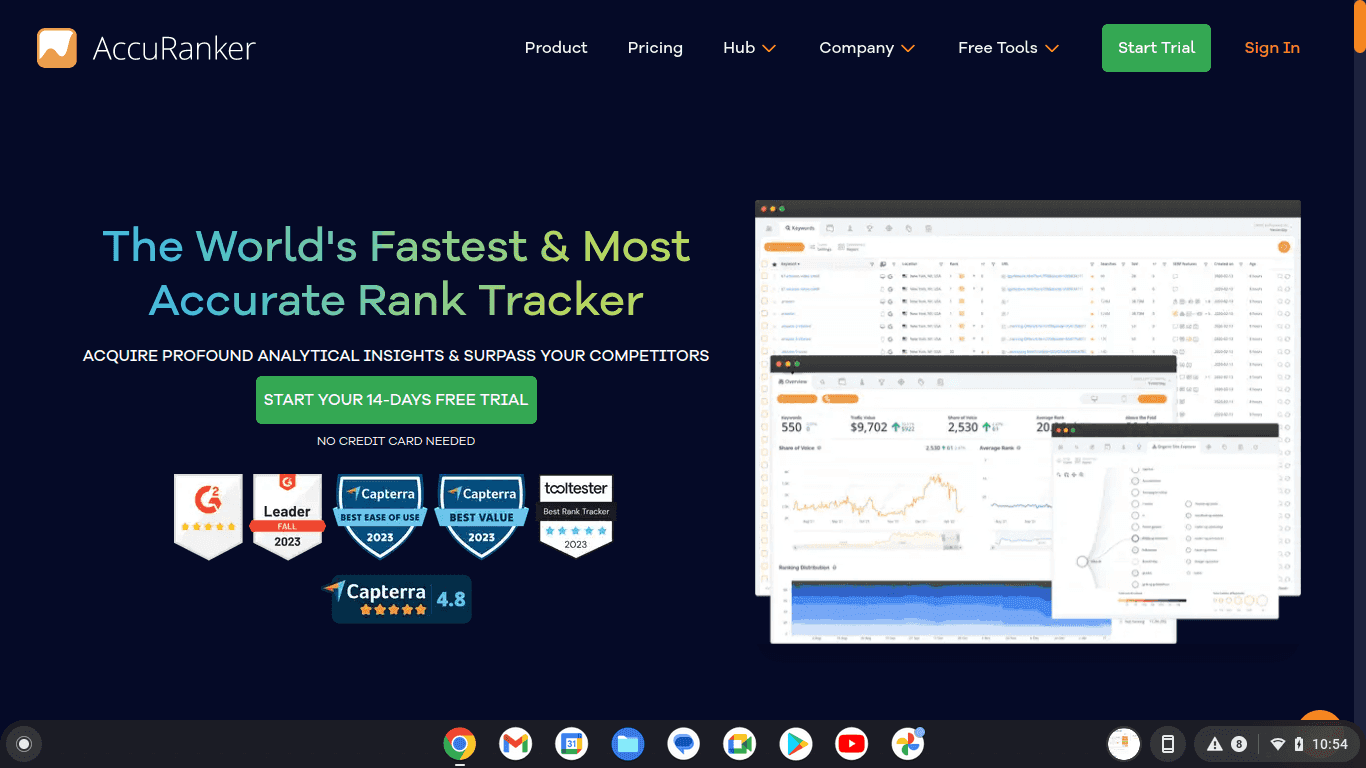
#2. Setting Up Rank Tracking Properly
To set up your rank tracking strategy:
Identify your top SEO competitors. Using a keyword research tool, input your industry keywords. You'll see a full list of competitors based on your keywords.
Choose a rank tracking tool. Find one that allows you to track factors like competitor keywords and rankings, organic traffic, backlink profile, domain score, on-page optimization strategies, content strategies, and engagement levels.
Track your rankings and your competitors' rankings side by side. If you're trying to compete for the same keyword as your competitor, look at where their web pages rank in the SERPs compared to yours.
Analyze results. Carefully analyze the data to determine how well your competitors' pages perform.
Take action. Look at what's working for your competitors and implement their strategies in your SEO plan. Of course, don't copy everything they do, but apply the fundamentals. You might even go further by increasing the length of your content or going more in-depth on topics with how-to guides and e-books.
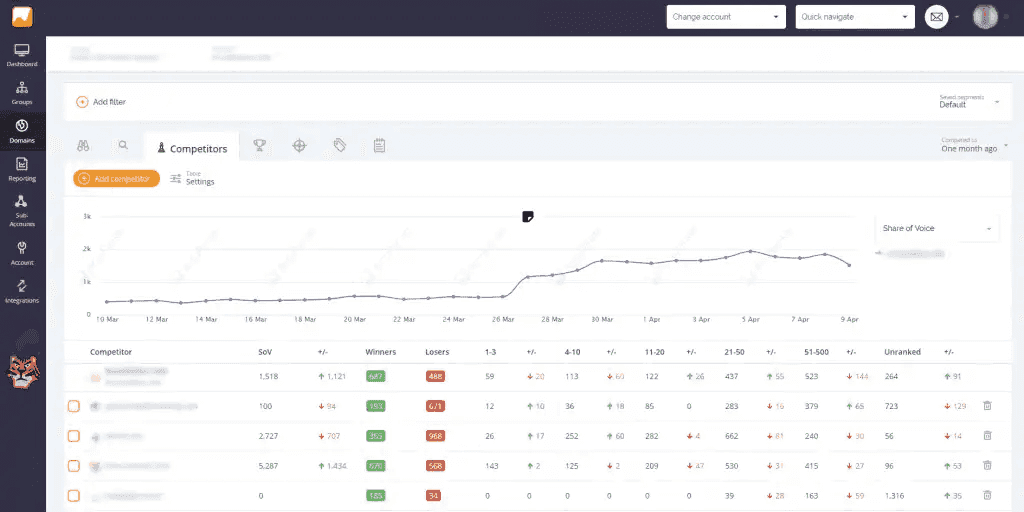
Source: Image Source
#3. Choosing the Right Keywords to Monitor
Don't know the right keywords to watch? Look at:
Branded keywords
Check if your competitors are using and successfully ranking for search terms that include your brand or product names. Have they created a comparison post discussing the pros and cons of your product vs. theirs?
What about a product comparison page that shows a side-by-side comparison of different products in your industry, including yours and theirs?
Here’s a simple example of a blog post by ClickUp that mentions their brand and their top competitor Monday:

Purchase intent keywords
To boost conversions and sales, target keywords that signal a high purchase intent. See how competitors are ranking for these specific search intent terms.
Here are some examples of purchase intent keywords across various industries.
Ecommerce:
Buy online
Discount code for
Free shipping
Order now
Purchase online
Travel:
Book flight to [Destination]
Best hotel deals in [City]
Discounted [Destination] tour packages
Real Estate:
Homes for sale in [City]
Buy apartment [Location]
Real estate agents near me
Keywords for high-converting pages or posts
Do you have any posts or web pages that convert at a much higher rate than others? These pages are probably getting a lot of traffic due to popular, highly relevant keywords.
That means your competitors might be ranking well for those keywords, too. Input these keywords into your rank tracking tool to analyze your competition's position in the SERPs and figure out how they're ranking so well.
The answer usually comes down to the helpfulness of the content, on-page and technical SEO practices, and a robust backlink profile.

#4. Importance of Localization in Rank Tracking
Rank tracking for local keywords is critical for businesses that want to rank in local searches. Doing so lets you see how you stack up against competitors regarding local search rankings.
Some rank tracking tools allow you to specify your target location to get geo-specific search ranking data. Then, you'll be able to see how other local businesses in your area are ranking for particular keywords.
This is incredibly important because a good local SEO strategy can increase the chances of your site appearing in the Google Map Pack. This featured snippet appears in 93% of searches with local intent.
The Map Pack features three or more business profiles at the top of the search results. Google ranks these businesses based on relevance, distance, and prominence.
Appearing in the Map Pack can greatly increase your local business's online visibility.
The screenshot below shows a Map Pack for nearby lawyers in the Atlanta area.

Screenshot by Britney Steele
#5. Identifying Your Primary Competitors
We stated above that you can identify your competitors using a keyword research tool or rank tracking tool.
After inputting your target keywords in the tool, you can discover other websites that target the same or similar keywords. These websites are likely your competitors.
You can also do a Google search on the keywords you're targeting. The web pages that pop up in the SERPs probably belong to your competitors as well. Remember to keep an eye out for direct and indirect competitors.
#6. Analyzing Competitor Keyword Strategies
After creating a list of your top SERP competitors, find the keywords they rank for and outrank you for.
A good keyword research tool will show you the keyword difficulty, representing how tough it'd be to rank for that keyword.
If the keyword has a higher ranking difficulty, it means that quite a few websites are already ranking for that keyword.
While it's not impossible to outshine your competitors for those keywords, you'll have a better chance of outranking your competitors by going after search terms that are less competitive (but still have a relatively high search volume).
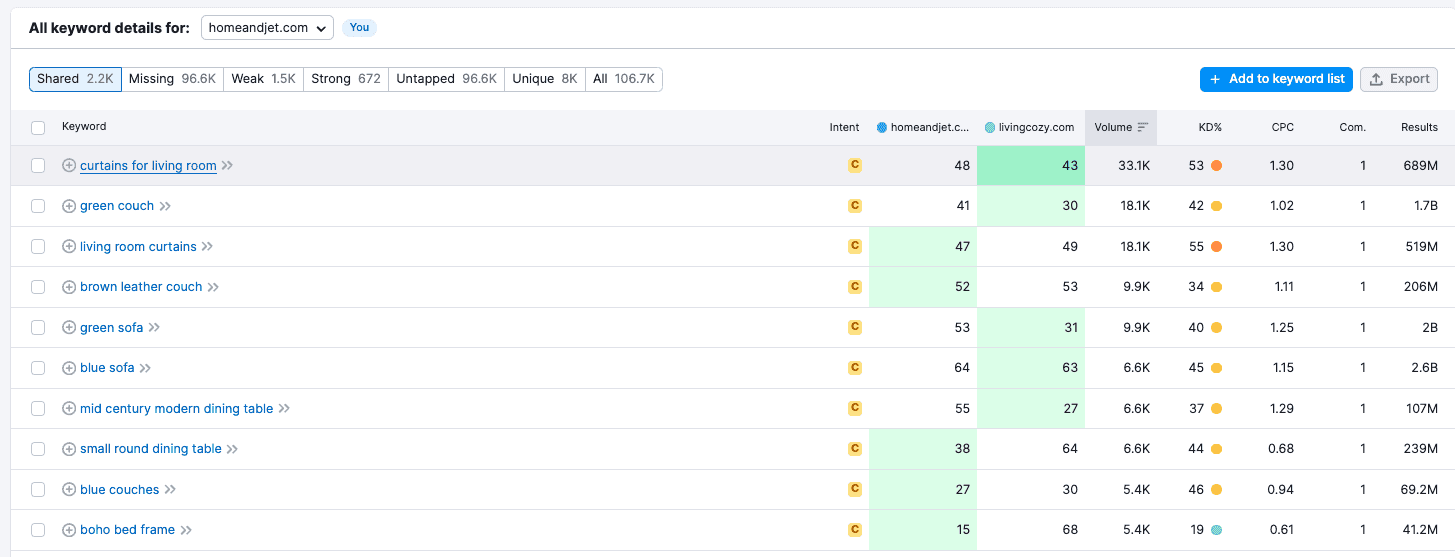
Screenshot by Britney Steele
Whether you choose to target lower-difficulty or higher-difficulty keywords, check your competitors' web pages that are ranking high in the SERPs.
Then, try to figure out why these pages are doing so well.
Are they strategically incorporating relevant keywords throughout their content?
How is the user experience on their websites?
How mobile-friendly are their web pages?
If your competitors are excelling in these aspects, that's probably why Google is prioritizing their content over others.
But that doesn't mean you can't outshine them.
Leverage an SEO tool that allows you to identify missing or weak keywords that they're not capitalizing on. Then, add these keywords to your web pages.
This blog post from Simply Recipes ranks number one on Google for the keyword “cold brew coffee.”

It likely ranks well because it naturally incorporates the target keyword throughout the page. The content also goes in-depth about the different factors that go into making cold brew coffee, offers actionable tips, and provides an easy-to-follow recipe.
Having a domain authority of 86 out of 100 also doesn’t hurt.
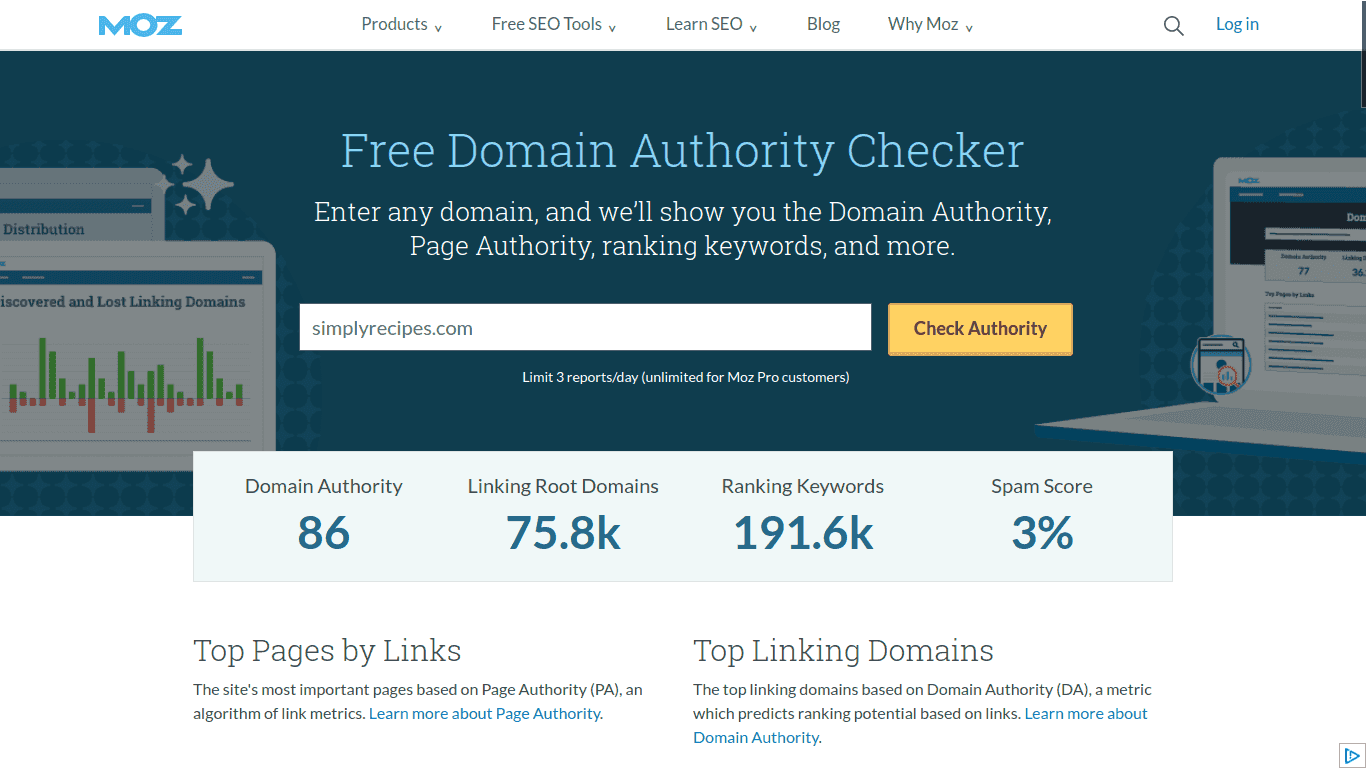
#7. Leveraging Historical Rank Data
Historical rank data provides you with insights into your competitors' ranking history. This data allows you to compare their past rankings and how they compare with their current rankings.
Then, you can unlock insights into what they may have been doing differently in the past before adopting more effective SEO strategies.
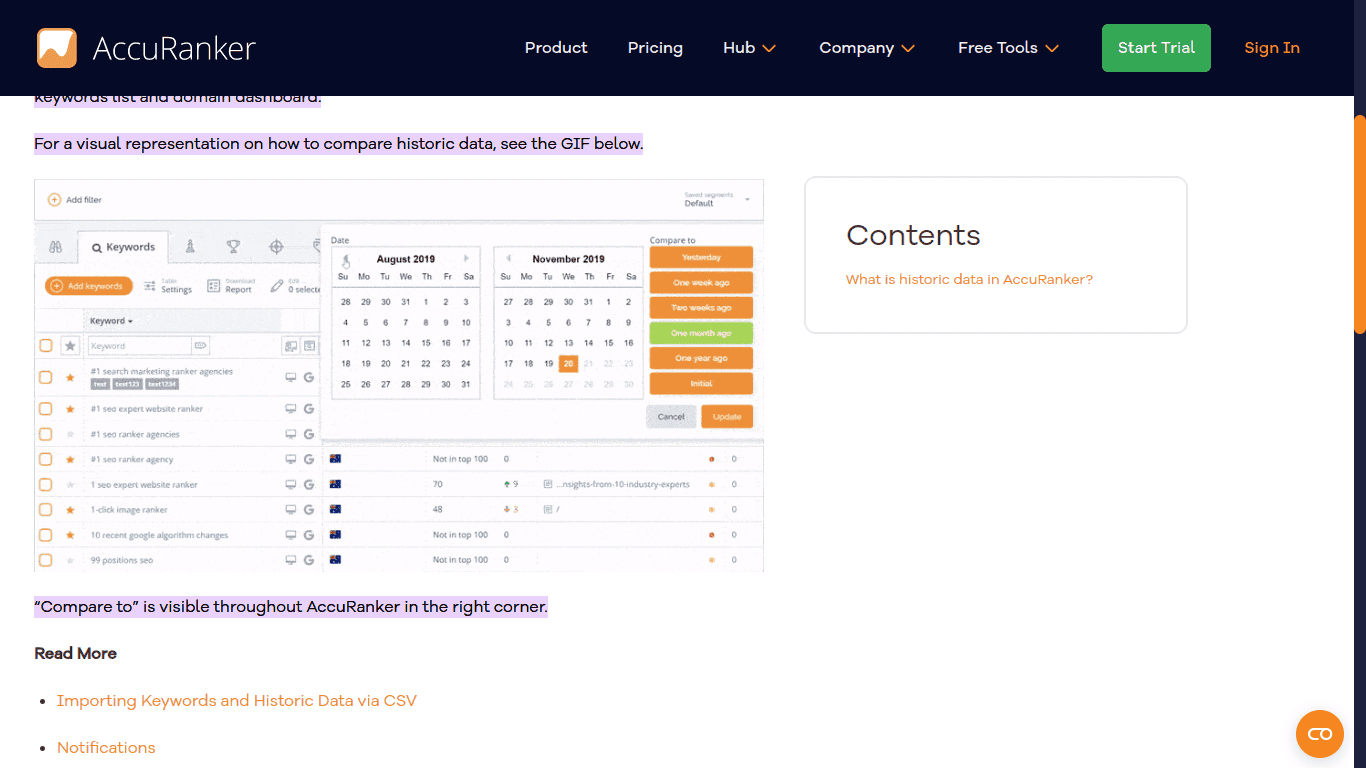
Source: Accuranker
#8. The Importance of Comprehensive Reporting
Comprehensive reporting provides a single view of your website's search rankings compared to your competitors. That means you'll have the data you need all in one place.
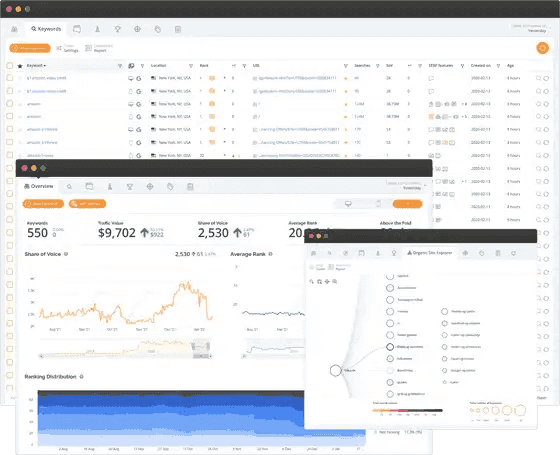
Source: Accuranker
Reports come in many formats, including Google Spreadsheets, PDFs, CSVs, or Excel sheets.
Some rank tracking tools allow you to customize the type of data you want your reports to show.
Some important metrics and data points might include:
Keyword summary
Keyword list
Total search volume chart
Competitor rankings
#9. Integrating Rank Tracking with Other SEO Tools
Integration with other SEO tools allows you to access important ranking data and take advantage of additional capabilities, all from one interface.
For example, AccuRanker integrates with the following tools to help you unlock deeper insights into your SEO performance:
Google Looker Studio
Google Analytics
Adobe Analytics
Google Search Console
Google Sheets
Key Takeaways
Data is the key to understanding and outdoing the competition. That’s where rank tracking gets its value.
Gather data about your competitors and think of ways to make your content better so that you can compete in the SERPs.
Get your hands on a rank tracking tool, use it to your advantage, and watch the rankings take off.

Article by:
Catalina Grigoriev
SEO and Content Marketing at Planable
Catalina Grigoriev is a incurable optimist with a bubbly personality. That’s what my colleagues say. Secret mission: cat lover disguised as a dog person. Ex law student who switched into the digital marketing lane. Currently delving into the depths of SEO and content marketing at Planable.
